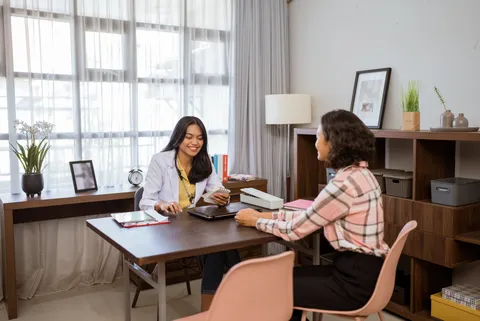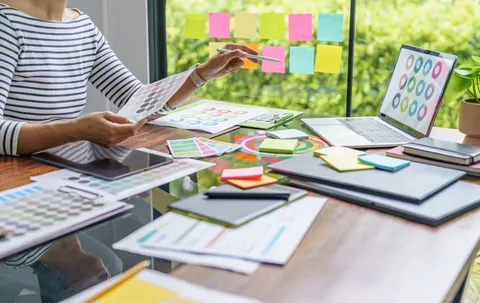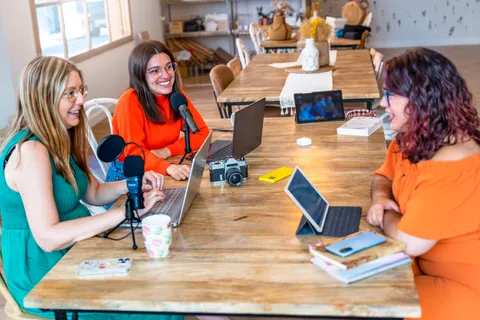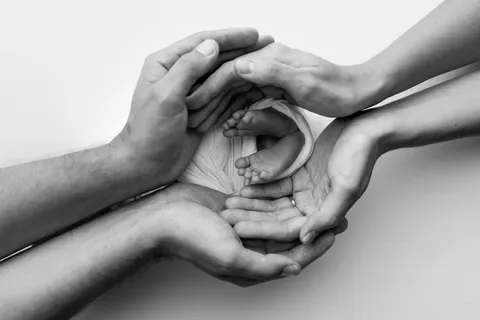Create the perfect interview questions is a complex yet rewarding process. Mastering this art leads to meaningful, productive dialogues. This comprehensive guide delves into various aspects of the process, including different interviewing techniques, types of questions, and the role of effective communication.
Key Points
- Mastering interviewing techniques is essential for crafting effective questions.
- Understanding the various types of questions enables a more balanced and insightful interview.
- Effective communication is vital for fostering genuine conversations and achieving clarity.
Crafting the Perfect Interview Questions: A Guide to Effective Communication and Authenticity
Introduction: Setting the Context
Interviews serve as a two-way street for sharing knowledge, building rapport, and fostering authentic relationships. Understanding how to craft insightful questions is paramount for interviewers in various fields, whether it's journalism, HR, or market research.
Crafting the right questions involves understanding the objectives of the interview, the context, and the interviewee's background. Good questions should prompt not only information sharing but also encourage critical thinking and emotional engagement from the interviewee.

Master the art of interviewing with our comprehensive guide. Learn techniques for effective conversations and create the perfect interview experience
Interviewing Techniques: Crafting the Conversation
Open vs Closed Questions
Maintaining a balance between open and closed questions is vital for depth and breadth in the responses.
Initial closed questions can set the stage and put the interviewee at ease. As the dialogue advances, more open questions can be introduced to elicit detailed, meaningful responses.
Pacing and Timing
Being aware of when to advance or pause is vital for conducting a successful interview.
Resist the urge to ask too many complex questions in succession. Spacing out the questions allows the interviewee time to breathe and think, enhancing the quality of their answers.
Active Listening
The art of active listening completes the equation of an effective interview.
Active listening involves not just hearing but also comprehending the underlying sentiments. This enables you to ask spontaneous follow-up questions, revealing deeper insights.
Question Types: Deciphering the Strategy
Behavioral Questions
Behavioral questions are crucial for evaluating past experiences to predict future performance.
Crafting good behavioral questions requires specificity and relevance to the interview's role or context, encouraging reflective and articulate answers.
Situational Questions
Situational questions can reveal how an individual might handle future challenges.
These questions can also showcase the decision-making framework an interviewee employs, offering a deeper understanding of their adaptability and problem-solving skills.
Fact-based Questions
Fact-based questions serve as the backbone for gathering concrete, verifiable information.
These questions can offer valuable context and set the stage for more complex questions, serving as a breather for the interviewee.
Effective Communication: Beyond the Words
Clarity
Clear, concise questions lead to more accurate answers. Avoid ambiguity or complexity in your questions to eliminate room for varied interpretations, ensuring you get the most accurate responses.
Body Language
Non-verbal cues significantly contribute to the effectiveness of the communication process. Small gestures like nodding, making eye contact, or smiling can have a powerful impact on the openness and comfort level of the interviewee.
Follow-up Questions
Don't hesitate to ask follow-up questions for clarity or to explore an area more deeply. Follow-up questions can encourage interviewees to expand or clarify their previous answers, leading to a more complete understanding of the topic.
Conclusion: Bringing it All Together
Crafting effective interview questions requires a blend of planning, intuition, and adaptability. This comprehensive guide aims to prepare you for conducting interviews that are not just informative but are also pathways to genuine connections and insights.
As you refine your techniques, you'll find that the quality of the information you collect will improve. More importantly, you will become skilled at fostering a space for meaningful and authentic dialogues, serving both the interviewer and the interviewee well.
In the digital age, the right video can be a game-changer for your brand, transforming audiences into loyal customers and elevating your revenue. Choose **Video Production in Melbourne, Adelaide, and Sydney by Vimi** and unlock the potent blend of creativity and strategic insight.
Frequently Asked Questions (FAQ)
- What is the importance of crafting perfect interview questions?
Crafting efective questions is crucial for gathering valuable insights and fostering authentic communication. - What are open and closed questions?
Open questions solicit detailed answers, while closed questions typically yield a yes-or-no response. - How can I practice active listening?
Focus completely on the speaker, show empathy, and refrain from interrupting. - What are behavioral questions?
These are questions that delve into past experiences to gauge future behavior. - How should I approach situational questions?
These questions are hypothetical and aim to understand how a person would react in a specific circumstance. - Why is effective communication essential in interviews?
Effective communication ensures that both parties understand each other clearly, increasing the value of the interview. - What role does body language play?
Non-verbal cues like eye contact and posture can significantly affect the effectiveness of communication. - How can I prepare effective follow-up questions?
Listen actively to the answers and ask questions that naturally extend the dialogue. - What should be avoided when crafting interview questions?
Avoid leading questions, complex jargon, or anything that might make the interviewee uncomfortable. - Can a mix of question types make an interview more effective?
Yes, a balanced mix of behavioral, situational, and fact-based questions can yield a more comprehensive understanding.





